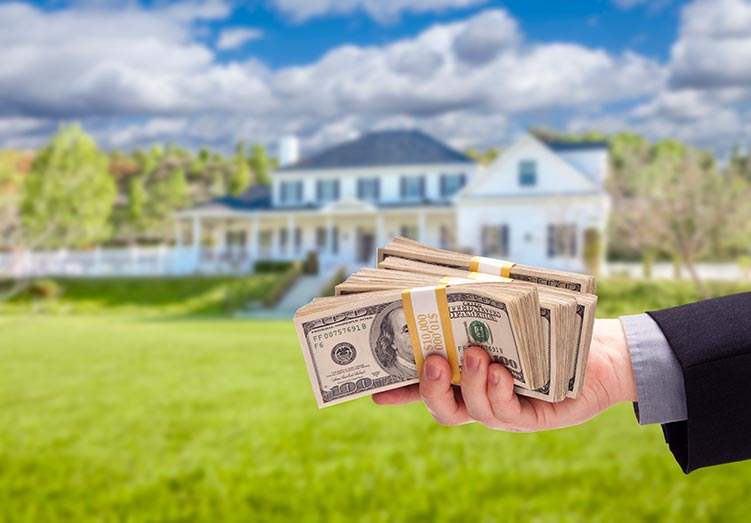
Before investing in a rental property, you need to know how to calculate the potential rate of return to determine whether it’s a suitable investment. Not to mention, knowing the return on investment (ROI) allows you to be a more informed investor.
Your rental property ROI is the ratio between net income and the investment costs of the rental. A high ROI means the investment gains are more favorable when compared to costs. However, figuring out whether or not the rate of return on a rental property is good can be a little tricky.
How to calculate the rate of return on a rental property
Here are some common ways to calculate the rate of return on a rental property and whether it’s a worthwhile investment.
- Cash-on-cash return
Cash-on-cash return = annual pre-tax cash flow / total cash invested
Cash-on-cash return, also known as equity dividend rate, measures pre-tax cash flow relative to the amount you initially invested into the rental property. Expense items can include:
- Mortgage payments (interest and principal)
- Property taxes
- Insurance
- Property management
- Repair services
- Asset management fees
But what’s a good rate of return? After calculating the cash-on-cash return, you’ll need to look at comparable properties (geographically similar, same property type, and similar business strategy) to use as a point of reference. The idea is to compare cash-on-cash return to other available investment alternatives to make a judgment.
- Cash flow
Cash flow = total income - total expenses
Add up rent and other income to determine gross cash flow. Take that number and subtract operating expenses. If the property is financed, deduct the monthly mortgage payment as well.
Cash flow is the income produced when returns exceed expenses, and it’s one of the most popular methods of calculating ROI. Net cash flow is the cash left over after rent has been collected and all bills have been paid. Cash flow can be positive or negative, but ideally, you want to have a positive cash flow.
- Capitalization rate (cap rate)
Cap rate = net operating income (NOI) / purchase price x 100%
The NOI is your annual income after deducting operating expenses. Cap rate is used to compare similar real estate investments, and it’s the rate of return you can expect on your investment based on the amount of income the property will potentially generate.
Several factors influence good cap rates:
- Current rental income
- Rent pro forma
- Risk tolerance
- Future appreciation
A good cap rate depends on your risk tolerance and the future potential of the rental property.
- Internal rate of return (IRR)
IRR is calculated using the net present value (NPV) formula by solving for R if the NPV equals zero: NPV= ∑ {Period Cash Flow / (1+R)^T} - Initial Investment, where R represents the interest rate and T represents the number of time periods.
The internal rate of return is an estimation of generated value during the time in which you own the property. It’s the total return measure and measures an average return over the holding period. In real estate, the IRR is the percentage of interest earned on each dollar invested in the property over the holding period.
What's a good rate of return on rental property?
It depends. Different people will give you different answers on what’s considered a “good” rate of return on a rental property. There are too many variables to give a clear-cut answer. The location, the type of property, the size of the property, the associated risk, and alternative investment opportunities all play a role in whether your rental property will produce a good rate of return.



